I am very passionate about having a writing workshop in the classroom and feel it is necessary to set aside at least 30-45 minutes each day for a writing workshop. Let me explain why a writing workshop is needed in your classroom.
Giving students time to write isn’t the same as teaching them to write.
Maybe you have a work-on-writing center. Maybe students are given time to write in a journal. Great, students do need time to write. However, their growth will be soooo slow if they aren’t being taught HOW to write.
We wouldn’t schedule daily time for our kiddos to practice their multiplication facts, but not bother to teach them multiplication strategies. We wouldn’t just give our kids time to read without teaching them phonics, site words, and comprehension strategies they would need to decode and understand what they are reading. So why have we been giving them time to write, but not teaching the strategies they need to become better writers?
In a writing workshop, students are given MINI lessons where the teacher introduces and models writing skills that she wants her students to use in their own writing. For example, she might start by teaching multiple strategies for generating story topics. She will quickly model these strategies in front of her students. Later, she might introduce students to several different types of leads that will hook their readers. Again, she will show students how she uses these leads in her writing.
These lessons are key to growing your students’ writing ability!!!
When you just give them time to write in a journal, but don’t teach them how to be a better writer, their beginning of the year entry isn’t much better than their end of the year entry.
When you give your authors strategies, model those strategies, AND THEN give them the time to write and practice- the growth is much more prevalent.
Not sure what you should be teaching during these mini lessons?
Are you unsure about what you should teach during mini lessons? I totally get that! I remember staring at a room full of third graders. It was time for writing workshop. This was a time that I dreaded. Here I am staring at these kids and thinking, “What in the world am I supposed to teach them?” I can remember giving lessons like this:
We have already talked about all of the important things that an opinion essay must have: an opinion statement, reasons, examples, transitions, and a conclusion. So, I want you to go back to your writing and make sure that you are doing these things.
I was setting my kiddos up to fail by just giving them a list of huge skills and telling them to do it. No modeling. No strategies. Yikes! I feel bad for the babies I taught during those scary years!
What To Teach in Writing Guide
After several years of awful writing lessons, I learned the importance of having just one narrow teaching point for each day. I learned to give examples and strategies. I even put together a list of all of the lessons that I almost always had to teach my writers.
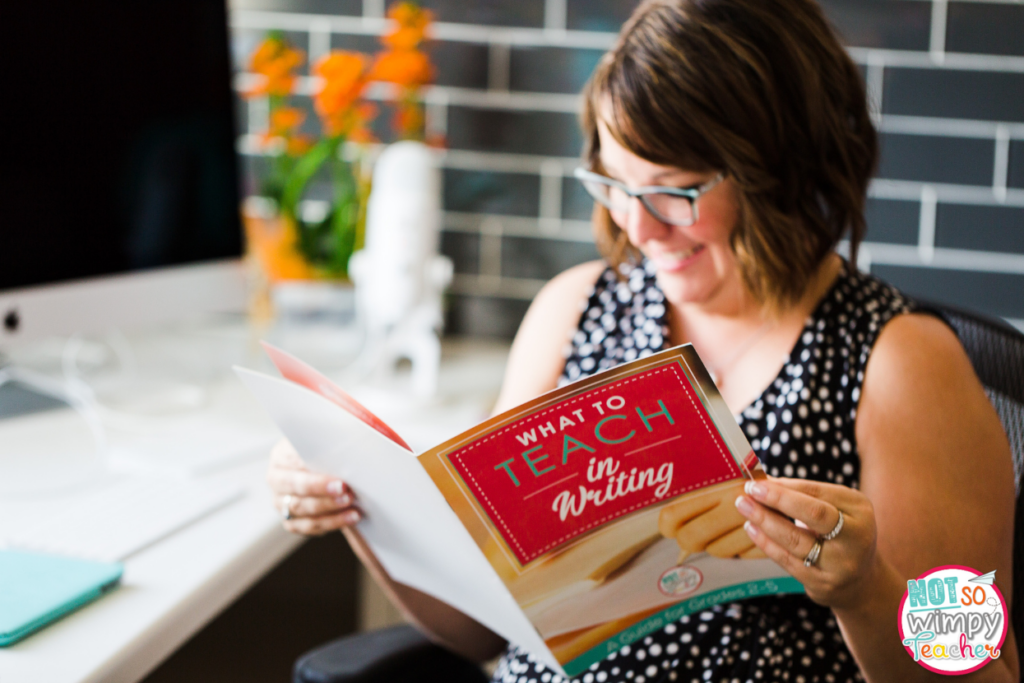
Use the button below to grab my FREE guide to what you should teach during writing. You can read more about what to teach in writing here.
Writing workshop provides differentiation.
Most classrooms already have a reading workshop. When I ask teachers why they use a reading workshop, they will say something like, “I have many different reading levels in my classroom and so a reading workshop gives me the opportunity to meet with small groups and provide text and lessons at their level.”
YES! Your students have different needs.
That is exactly why you need to have a writing workshop as well!
I am willing to bet my last taco that you have writers at all different levels in your classroom. You probably have kiddos that are struggling to write a sentence and some other kiddos that are struggling to write a paragraph. Maybe you are lucky enough to have a couple of students who can write really well and are ready for more advanced word choice.
That sounds like the pretty typical classroom to me!
The only way you can meet all of their needs is through small group conferencing. The workshop model gives teachers the opportunity to meet with individual students and small groups of students to help them at their level. Just like you do with reading and math groups!
So, you can give a one-size-fits-all mini lesson and then meet your students where they are at to give them the perfect fit lesson. Best of both worlds!
This is where you get huge growth! Just like reading and math, writing instruction needs to be differentiated to meet your students’ needs. A writing workshop is the best way to provide that differentiation.
Writing workshop encourages a love for writing.
If you have been following me for long, you have probably heard me talk about my desire to encourage a love for reading in my students and your students. A student who loves to read, will choose to read often and thus become a better reader.
Well, guess what…writing is no different!
We want our students to love writing. Asking students to write should not be like pulling teeth!

There are a couple of key aspects to the workshop that help to encourage this love for writing.
First, and most importantly, students are given a choice within the writing workshop. They can choose where to write. They can choose their favorite utensils to write with. And-this is the kicker-they can choose WHAT to write about.
Yup, in a writing workshop, the students choose the topic.
No more telling them that they must write a report about a president or that they must write a narrative about what they did over the weekend.
Scary, right?!
I mean, when you start letting students choose their own topic, you are going to get stories about video games. Lots of stories about video games. You know what? That’s okay!
When students write about the topic that interests them the most, they enjoy writing more. It’s just like getting to choose the book they want to read makes reading more enjoyable. When they choose their writing topic, they are more invested and excited. We want this!
Excited writers want to write! Excited writers want to write better. Ya’ll, excited writers pass the standardized writing tests!
Writing workshop makes lesson prep easier.
Many teachers think that adding a writing workshop to their routine will increase the amount of planning and prep that they will have to do.
This is not always the case.
If you are currently providing prompts and projects for your students, then you are probably spending more time prepping than you would with a workshop.
It takes time to come up with those writing projects. You are probably searching Google, Pinterest, Facebook groups, and Teachers Pay Teachers for something your kids can do during writing. That takes a ton of time!
Less wasted time
I’m guessing you get off task a few dozen times . . . Ooh! Look at that chocolate cake recipe! I need to pin that so I can fill my Pinterest recipe board with more recipes that I will never have the energy to make!
Or is that just me?!
Since you are finding these projects in different places every time, they all have different directions and required materials. You are having to read and research how to best implement this project. AND . . . you will have to spend precious class time to explain all of the directions and expectations to your students.
If you are currently doing a work-on-writing center, than I assume you are searching out new activities for that center. Then you have to prep these new activities and teach your students how to complete these activities.
I bet you even spend a bunch of time collecting and grading these projects. Am I right? What if I told you writing workshop doesn’t have to be like that? When you implement a writing workshop there are lots of things you don’t need to do anymore. You don’t need to:
- find new activities every week.
- print and prep elaborate activities.
- waste class time teaching new expectations every week or two.
- grade writing samples every week.
Sounds good, right?
A Writing Workshop Routine
Writing workshop can become a routine that stays consistent ALL year. So, teach the routine once and use it all year. You no longer have to wonder, What will my students do in writing this week? The answer is always the same: They will work on their masterpieces as they move through the writing process one small step at a time.
Ready-to-Use Writing Lessons
If you don’t want to have to even think about the lesson plans or come up with examples and strategies- you don’t have to. I’ve made it super easy to implement writing workshop in your classroom. I have written an entire year of lesson plans and anchor charts for you.
All you have to do is print and teach.
I have full year writing bundles for grades 2-5. These bundles include 32 weeks of done-for-you writing lessons for four writing genres: personal narrative, informational report, opinion, and fiction. They include:
- detailed teacher directions and suggestions for simple implementation
- 160 days of lesson plans that include guiding questions, materials, mini lessons, student work tasks, student share tasks, intervention and several extension activities
- original mentor text passages
- task cards
- teacher and student anchor charts (blank and filled in versions)
- student printables
- rubrics for all four genres
- and so much more.
Shop This Post
I wanted it to be THAT easy for you, because honestly, I would have loved this kind of simplicity in my early years of teaching. Heck, I would have given up chocolate, tacos, and soda just to get my hands on these materials during those dark years!
It really is easy to start a writing workshop. Learn more about how to plan a successful writing workshop now.
Have a Not So Wimpy day,


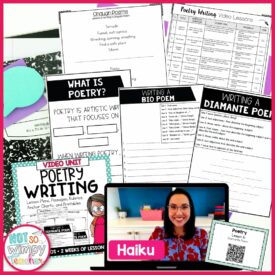




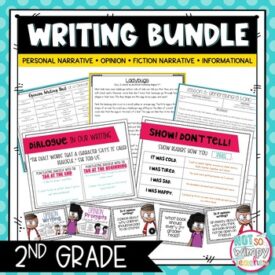
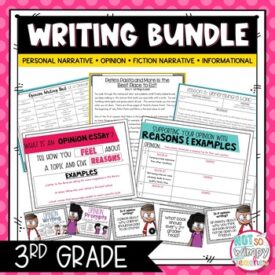
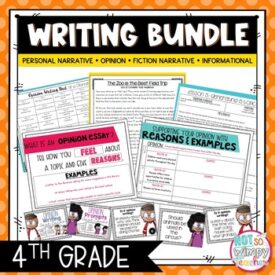
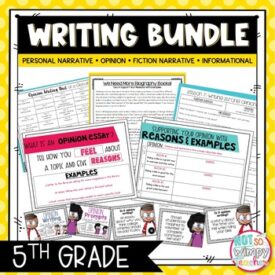

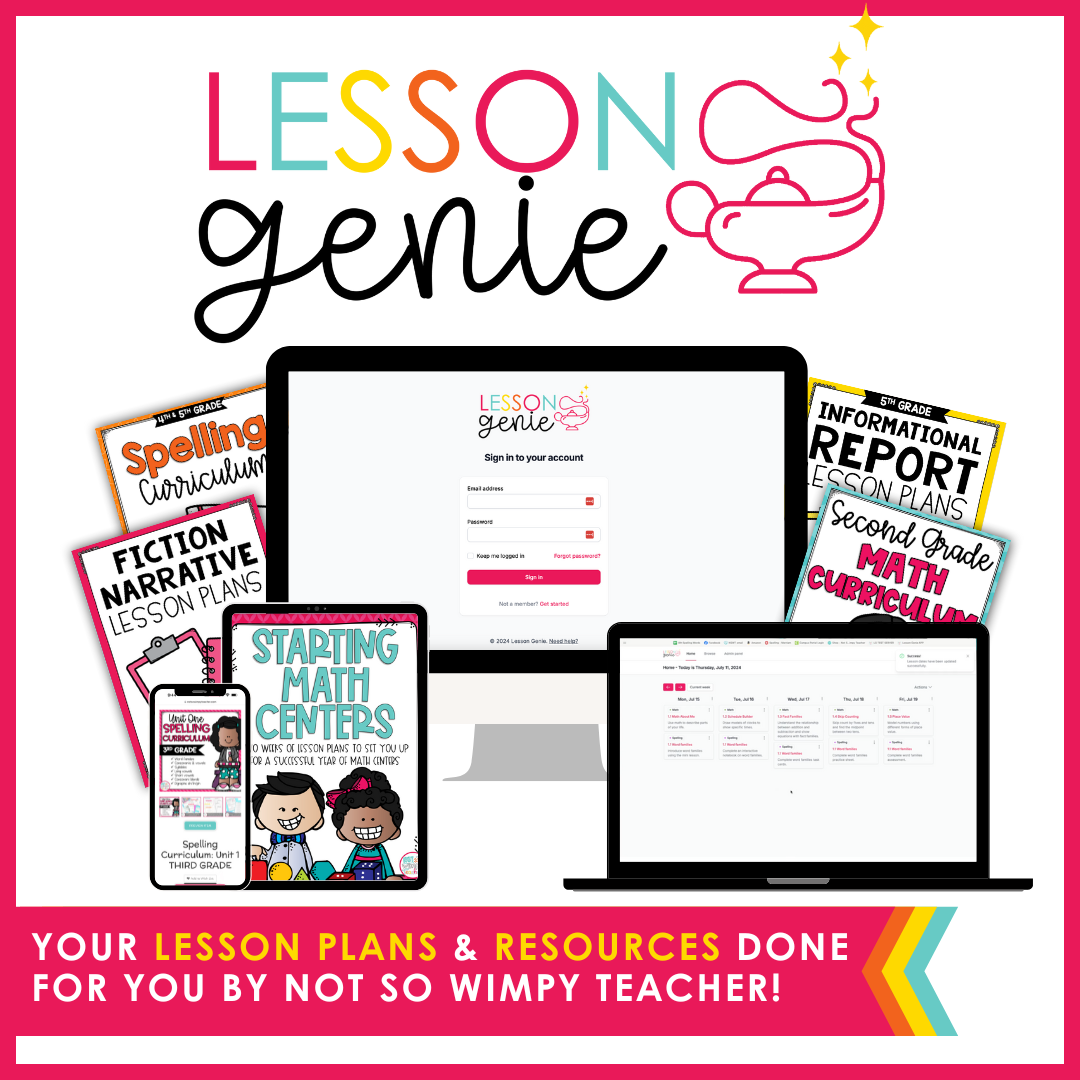
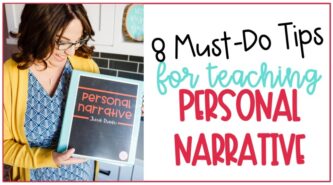

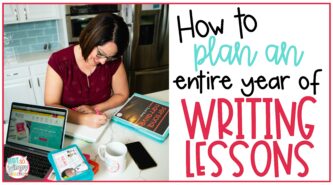
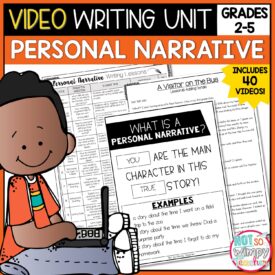
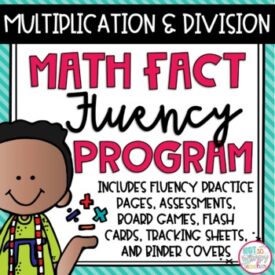
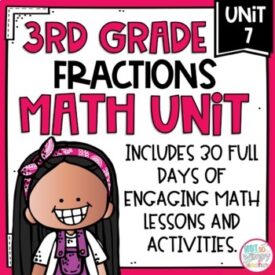
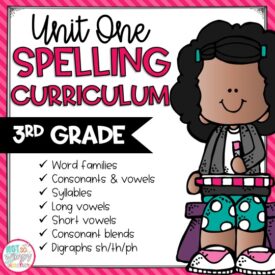
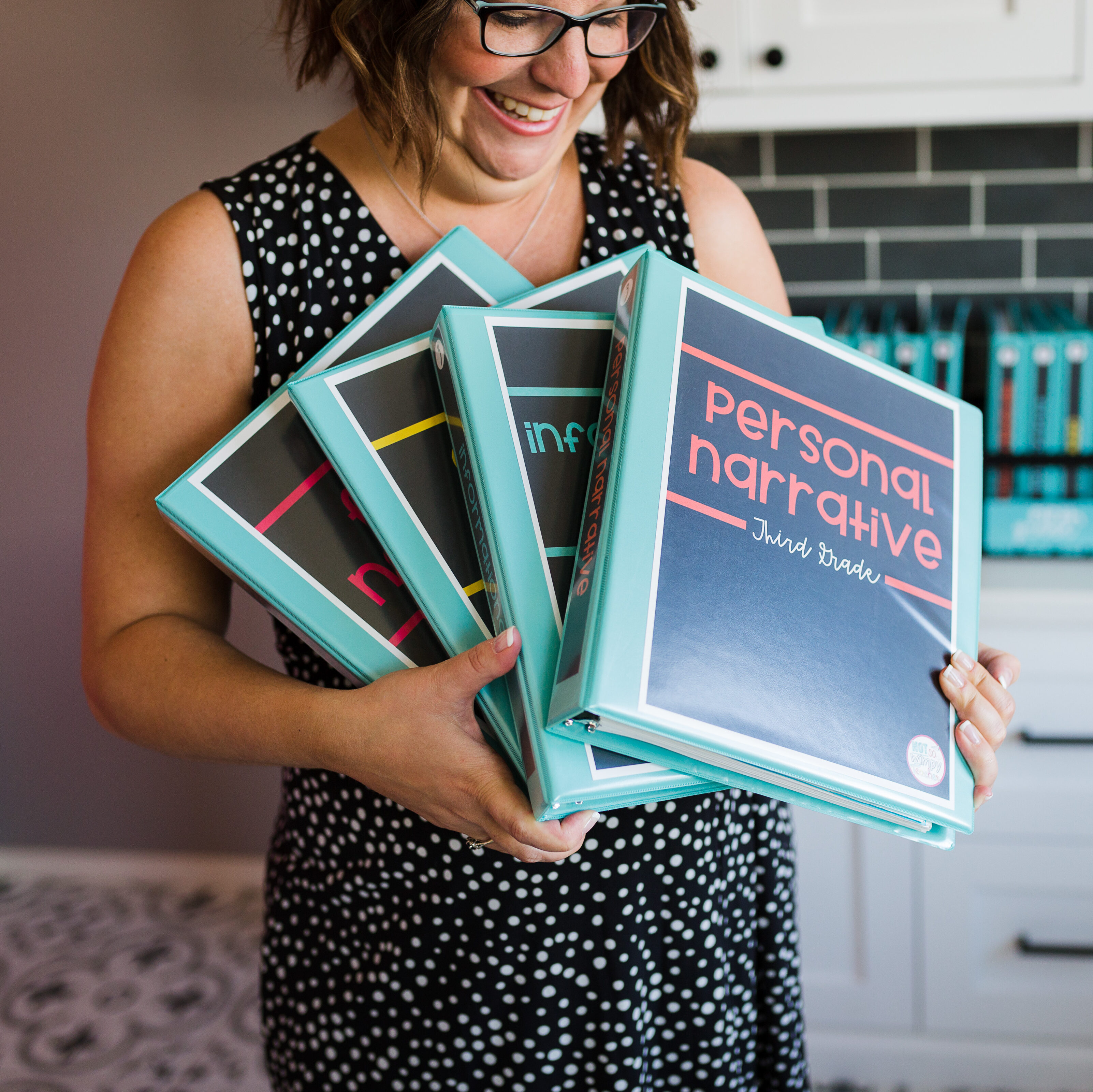

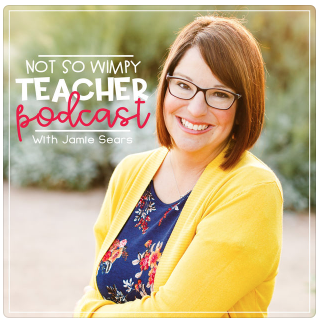




 End of Year Carnival Week for grades 2-5!
End of Year Carnival Week for grades 2-5!
Leave a Comment